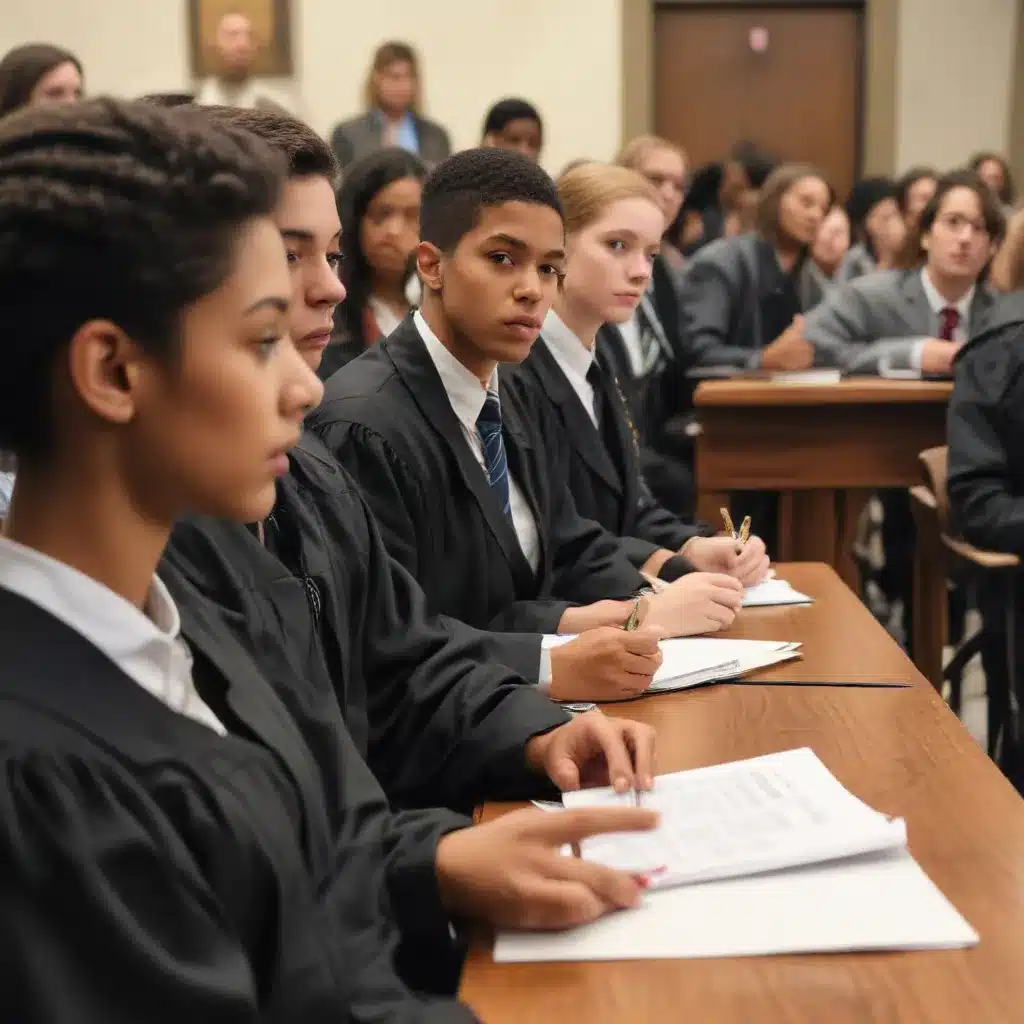
Understanding the Impact of Collateral Consequences
Students who become involved in the justice system often face a range of secondary repercussions, known as collateral consequences, that can significantly impact their lives even after their initial interaction. These consequences can restrict a student’s ability to recover and develop into a productive and self-sustaining adult. As an educational institution, Stanley Park High School is committed to understanding and addressing the unique challenges these students face.
Collateral consequences can be immediate or long-term in nature. Immediate impacts may include suspension from school, difficulties accessing housing or social services, and financial penalties for the student or their family. Long-term consequences can involve barriers to employment, education, and other opportunities that hinder a student’s future prospects.
These consequences can be especially detrimental for students from racially marginalized or low socioeconomic backgrounds, compounding the challenges they already face. Collateral consequences have a profound effect, hindering a student’s ability to overcome their involvement with the justice system and successfully transition back into their community.
Comprehensive Reform and Targeted Strategies
To address the complex issue of collateral consequences, states have implemented a range of strategies. Some have pursued comprehensive reform, addressing systemic issues within the juvenile justice system, while others have targeted specific policies that create or exacerbate collateral consequences.
Comprehensive Reform Approaches
Comprehensive reform aims to mitigate collateral consequences through system-wide changes, often requiring collaboration across multiple agencies. This approach may address underlying problems such as lack of funding, community support, or understanding of the unique needs of justice-involved students.
Effective comprehensive reform measures incorporate a trauma-informed response, sufficient state-allocated funding, and robust community-based support. A trauma-informed approach ensures that the justice system meets the needs of students in a way that does not cause further harm. Adequate state funding can provide the necessary resources for educational programs, vocational training, housing, and access to legal counsel. Community-based support services also play a crucial role in promoting positive outcomes for these students and their families.
Targeted Policy Strategies
In addition to comprehensive reform, states have also implemented targeted policies to address specific collateral consequences. This approach can be more readily adopted and implemented, as it focuses on a narrower set of outcomes. Examples of targeted policies include:
- Expunging or sealing juvenile records to prevent them from hindering future opportunities
- Ensuring access to education and vocational training programs for justice-involved students
- Providing support for families of justice-involved students, such as financial assistance or housing solutions
- Strengthening partnerships between the justice system, schools, and community organizations to facilitate successful reintegration
Collaborative Efforts for Holistic Support
Addressing the challenges faced by justice-involved students requires a collaborative effort among various stakeholders, including state and local law enforcement, prosecutors, judges, school personnel, and community leaders. By working together, these stakeholders can ensure a coordinated and comprehensive approach to supporting these students.
Key considerations for effective collaboration include:
- Fostering open communication and information-sharing among all relevant agencies and organizations
- Ensuring that the unique needs and circumstances of each student are understood and addressed
- Developing tailored interventions and support services that address the specific challenges faced by each student
- Providing training and resources to equip stakeholders with the knowledge and skills to effectively support justice-involved students
Strategies for Stanley Park High School
As an educational institution, Stanley Park High School is well-positioned to play a pivotal role in supporting justice-involved students and mitigating the impact of collateral consequences. By implementing the following strategies, the school can foster a more inclusive and supportive environment for these students:
Implementing Trauma-Informed Practices
Ensure that all school staff, from teachers to administrators, are trained in trauma-informed practices. This approach helps to create a safe and nurturing environment that addresses the unique needs of justice-involved students, promoting their healing and recovery.
Enhancing Partnerships and Collaboration
Strengthen partnerships with local law enforcement, the juvenile justice system, social services, and community organizations. By working collaboratively, the school can coordinate support services, share information, and develop comprehensive plans to address the holistic needs of justice-involved students.
Providing Targeted Academic and Social-Emotional Support
Offer targeted academic interventions, such as tutoring, mentoring, and alternative learning programs, to help justice-involved students catch up and succeed academically. Additionally, provide access to social-emotional support, including counseling and support groups, to address the psychological and emotional challenges these students may face.
Advocating for Policy Change
Partner with local and state policymakers to advocate for reforms that address the collateral consequences faced by justice-involved students. This may include pushing for the expungement of juvenile records, increased funding for support services, and the implementation of comprehensive, trauma-informed approaches within the justice system.
By embracing these strategies, Stanley Park High School can play a vital role in supporting justice-involved students, empowering them to overcome the unique challenges they face and achieve academic and personal success.
Conclusion
The collateral consequences faced by students involved in the justice system can have a profound and lasting impact on their lives. By understanding the immediate and long-term effects of these consequences, and implementing comprehensive reform and targeted strategies, educational institutions like Stanley Park High School can make a meaningful difference in the lives of these vulnerable students.
Through collaborative efforts, trauma-informed practices, and targeted support, schools can help justice-involved students break the cycle of adverse outcomes and unlock their full potential. By addressing the unique needs of these students, we can cultivate an educational environment that fosters resilience, academic achievement, and successful reintegration into the community.

